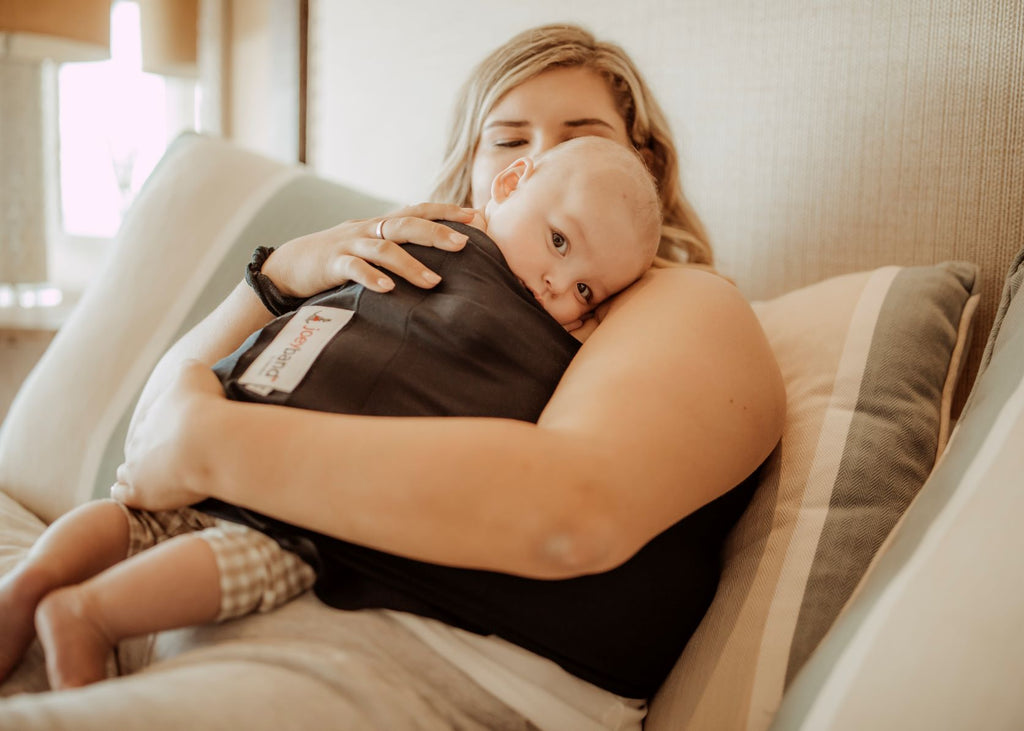Exciting, rewarding, emotional... while parenthood is all of these things, it can also be pretty terrifying! If you're expecting your little one soon and are feeling a little unsure about what to expect from life with a newborn, don't worry - we've been there!
While it’s difficult to ever fully prepare yourself for becoming a parent, using your final months of pregnancy to get familiar with some basic baby knowledge can help you feel a little less overwhelmed for when your new addition arrives.
Here are a few tips for baby-handling, diapers, bathing and bringing in help!
Handling a Newborn
First things first! Making sure your baby is held properly and safely is paramount to their safety and development. If you haven't spent a lot of time around newborns, their fragility can seem a little intimidating. Here are a few basics to remember:
-
Wash your hands (or use a hand sanitizer) before handling your baby. Newborns don't have a strong immune system yet, so they're at risk for infection. Make sure that everyone who handles your baby has clean hands.
-
Support your baby's head and neck. Cradle the head when carrying your baby and support the head when carrying the baby upright or when you lay your baby down.
-
Make sure your baby is securely fastened into their carrier, stroller or car seat, and limit any activity that could be too rough or bouncy. You can also use a Joeyband™ for skin-to-skin bonding and hands-free snuggles!
- Remember that your newborn is not ready for rough play, such as being jiggled on the knee or thrown in the air - and never shake your baby, either in play or frustration.
Bathing
You should give your baby a sponge bath until the umbilical cord falls off and the navel heals completely (1–4 weeks). A bath two or three times a week in the first year is fine. More frequent bathing may dry out your baby’s skin and cause them discomfort.
When your little one is ready for tub baths, the first baths should be gentle and brief. If baby gets upset, go back to sponge baths for a week or two before trying the tub bath again.
Diapers
Babies dirty their nappies about 10 times a day, so it’s a good idea to know what to expect ahead of time! Whether you choose to use cloth or disposable diapers, make sure you have all the supplies within reach so you won't have to leave your infant unattended on the changing table. You'll typically need:
- Clean diaper
- Fasteners (if cloth prefold diapers are used)
- Diaper ointment
- Diaper wipes (or a container of warm water and a clean washcloth or cotton balls)
When changing your baby, lie them on their back and wash them using wipes or water and a cloth/cotton balls. If you have a boy, be aware that exposure to air can cause them to urinate, so remove his diaper carefully! Parents of girls should also remember to wipe her from front to back to avoid her developing a urinary tract infection.
Diaper rash is also a common concern. Typically the rash is red and bumpy and will go away in a few days with warm baths, some diaper cream, and a little time out of the diaper. Most rashes happen because the baby's skin is sensitive and becomes irritated by the soiled diaper.
Getting help!
Many new parents also opt to bring in some extra help after the birth, while you adjust to the first few days of life with a newborn! Relatives and friends can be comforting to have around as an extra support.
If you’d rather an impartial presence to help you with your new baby, though, you can look into hiring a postpartum doula. Postpartum doulas provide support for new parents after the baby is born and through the first six weeks of your baby's life.
Are you expecting a baby, or maybe you have a newborn? Follow us on Facebook or Instagram. You can also subscribe to our newsletter for our latest news and updates, or for more useful, baby-handling knowledge from our experienced Joeyband™ team.

